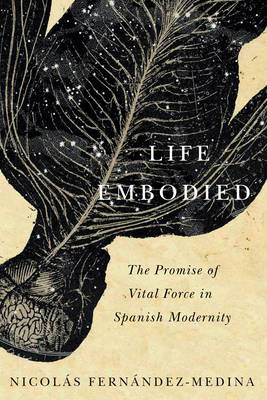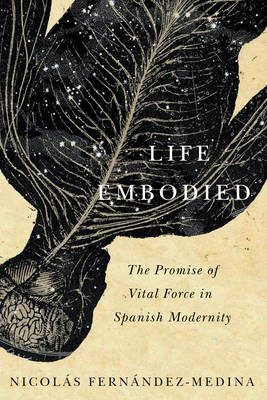
Wil je zeker zijn dat je cadeautjes op tijd onder de kerstboom liggen? Onze winkels ontvangen jou met open armen. Nu met extra openingsuren op zondag!
- Afhalen na 1 uur in een winkel met voorraad
- Gratis thuislevering in België vanaf € 30
- Ruim aanbod met 7 miljoen producten
Wil je zeker zijn dat je cadeautjes op tijd onder de kerstboom liggen? Onze winkels ontvangen jou met open armen. Nu met extra openingsuren op zondag!
- Afhalen na 1 uur in een winkel met voorraad
- Gratis thuislevering in België vanaf € 30
- Ruim aanbod met 7 miljoen producten
Zoeken
€ 47,45
+ 94 punten
Uitvoering
Omschrijving
The concept of vital force - the immanent energy that promotes the processes of life in the body and in nature - has proved a source of endless fascination and controversy. Indeed, the question of what vitalizes the body has haunted humanity since antiquity, and became even more pressing during the Scientific Revolution and beyond. Examining the complexities and theories about vital force in Spanish modernity, Nicolás Fernández-Medina's Life Embodied offers a novel and provocative assessment of the question of bodily life in Spain. Starting with Juan de Cabriada's landmark Carta filosófica, médico-chymica of 1687 and ending with Ramón Gómez de la Serna's avant-gardism of the 1910s, Fernández-Medina incorporates discussions of anatomy, philosophy, science, critical theory, history of medicine, and literary studies to argue that concepts of vital force served as powerful vehicles to interrogate the possibilities and limits of corporeality. Paying close attention to how the body's capabilities were conceived and strategically woven into critiques of modernity, Fernández-Medina engages the work of Miguel Boix y Moliner, Martín Martínez, Diego de Torres Villarroel, Sebastián Guerrero Herreros, Ignacio María Ruiz de Luzuriaga, Gaspar Melchor de Jovellanos, Pedro Mata y Fontanet, Ángela Grassi, Julián Sanz del Río, Miguel de Unamuno, and Pío Baroja, among others. Drawing on extensive research and analysis, Life Embodied breaks new ground as the first book to address the question of vital force in Spanish modernity.
Specificaties
Betrokkenen
- Auteur(s):
- Uitgeverij:
Inhoud
- Aantal bladzijden:
- 416
- Taal:
- Engels
- Reeks:
Eigenschappen
- Productcode (EAN):
- 9780773553378
- Verschijningsdatum:
- 30/05/2018
- Uitvoering:
- Paperback
- Formaat:
- Trade paperback (VS)
- Afmetingen:
- 150 mm x 229 mm
- Gewicht:
- 612 g

Alleen bij Standaard Boekhandel
+ 94 punten op je klantenkaart van Standaard Boekhandel
Beoordelingen
We publiceren alleen reviews die voldoen aan de voorwaarden voor reviews. Bekijk onze voorwaarden voor reviews.











